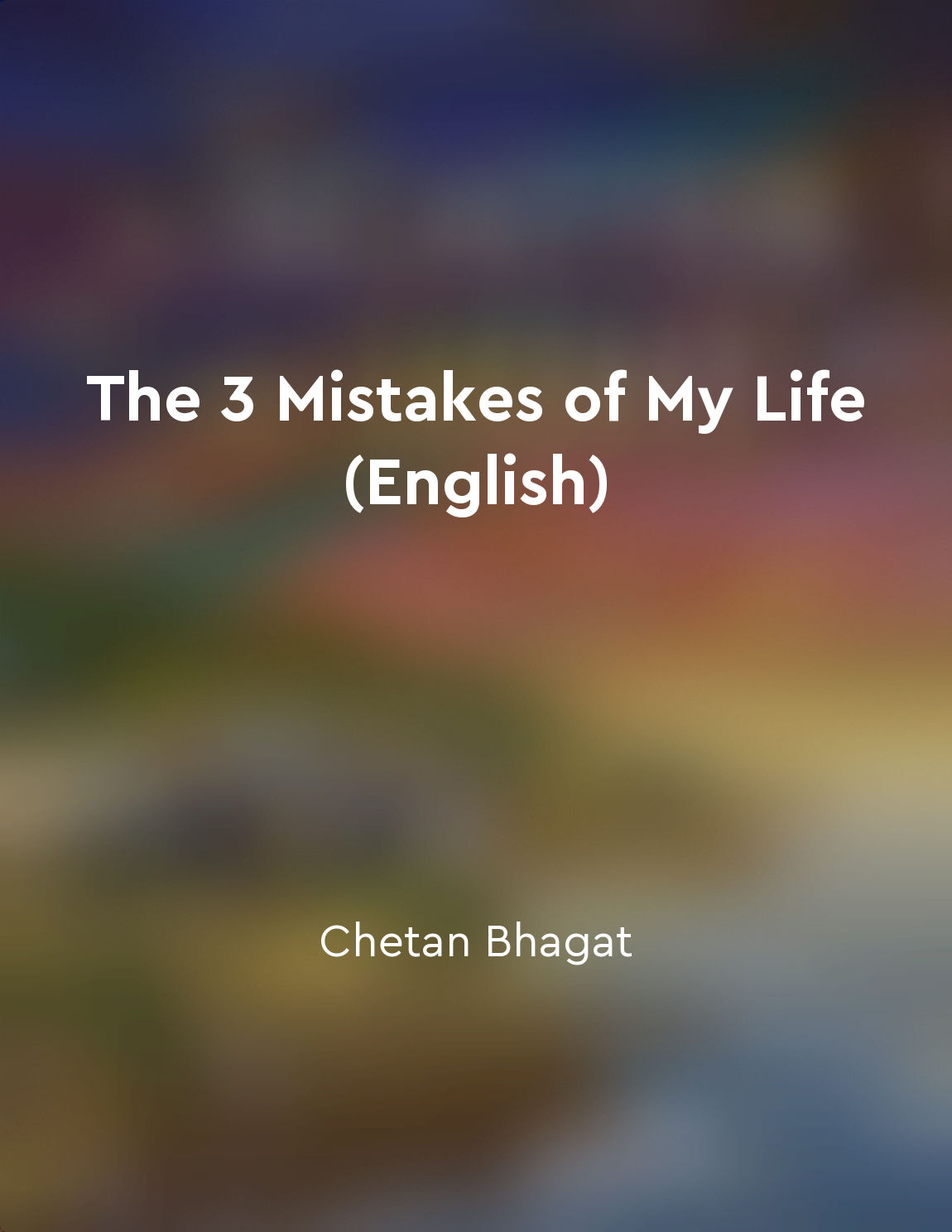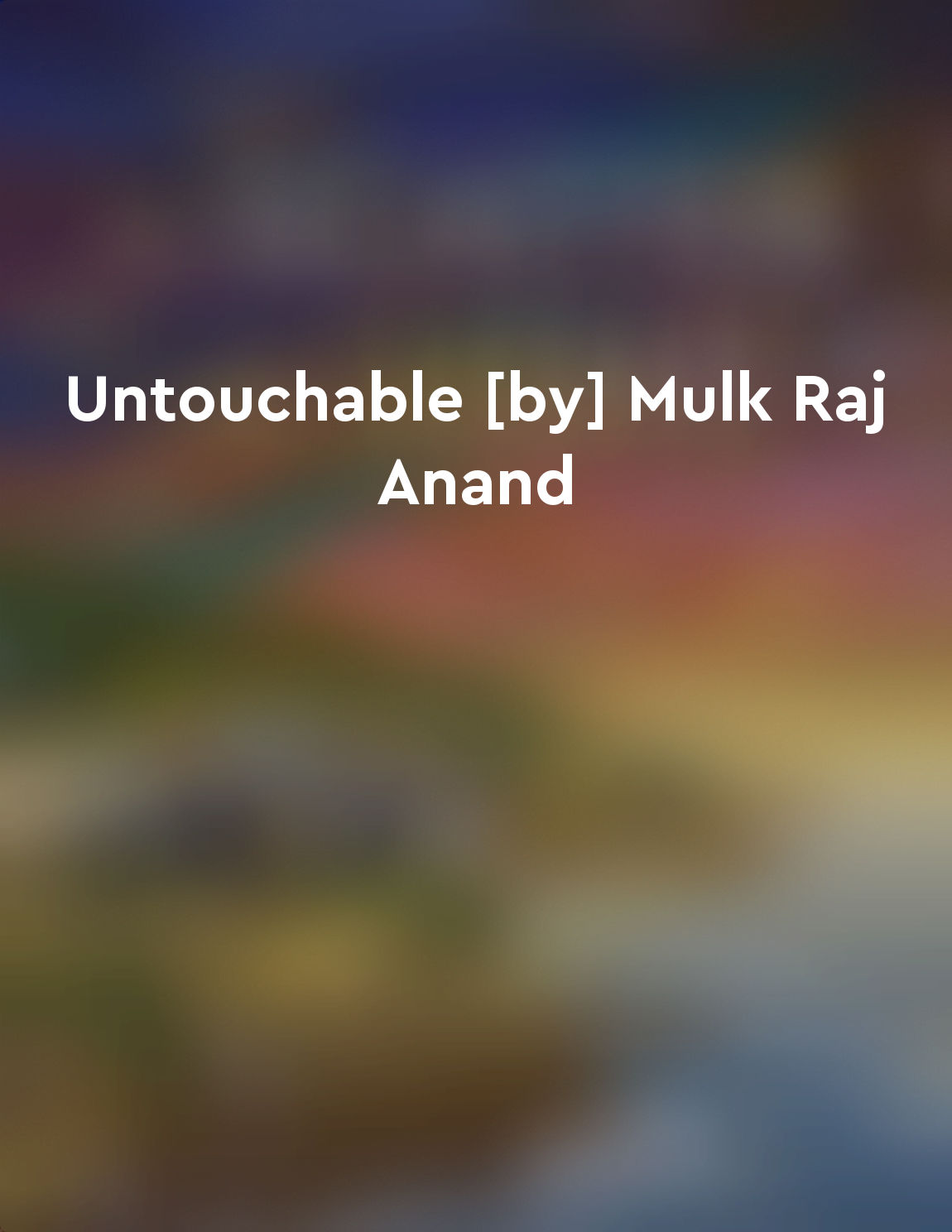The novel centers around a day in the life of a young sweeper named Bakha from "summary" of Untouchable [by] Mulk Raj Anand by
The sun rose over the city, casting its golden light on the narrow streets and crowded alleys. In the midst of this bustling metropolis, a young sweeper named Bakha began his day. As he set out on his daily routine of cleaning the streets and disposing of waste, he was filled with a sense of duty and purpose. Bakha moved through the city with agility and skill, his broom sweeping away the debris and dirt that littered the streets. Despite the heat and the stench, he worked tirelessly, his hands and feet moving with precision and speed. The people around him barely glanced his way, their faces turned away in disgust and disdain. Throughout the day, Bakha encountered various challenges and obstacles. From the taunts and insults hurled at him by passersby to the physical exhaustion that threatened to overwhelm him, he faced it all with stoicism and resilience. His thoughts often wandered to his family, to his dreams of a better life, but he pushed them aside, focusing instead on the task at hand. As the day wore on, Bakha's weariness grew, his body aching and his mind numb with fatigue. Yet, he pressed on, his determination unwavering. The novel delves into the complexities of Bakha's life, his struggles and his hopes, painting a vivid portrait of a young man caught in the rigid social hierarchy of Indian society. Through Bakha's eyes, we see the injustices and inequalities that define his world, the deep-rooted prejudices and discrimination that he must contend with every day. And yet, amidst the darkness and despair, there shines a glimmer of hope, a flicker of defiance that stirs within Bakha's heart. As the day draws to a close and Bakha finally returns home, the reader is left with a profound sense of empathy and understanding. The novel invites us to step into Bakha's shoes, to see the world through his eyes, and to confront the harsh realities of untouchability and caste oppression. In doing so, it challenges us to question our own assumptions and biases, and to strive for a more just and compassionate society.Similar Posts
The bond between humans and animals is sacred
In life’s journey, we often come across beings who are not of our kind, yet, they touch our hearts in a way that is beyond word...
Loss of young black men
The deaths came too quickly, one after the other, like a series of cruel punches to the gut. Each loss brought its own unique p...
Discovering hidden talents
In life, we often go through the motions, sticking to what we know and what is comfortable. We tend to follow a set path, never...

Unforeseen circumstances can alter life's course
In the course of life, unexpected events have the power to completely change our path. These unforeseen circumstances can come ...
Povertystricken childhood in apartheid South Africa
The memories of my childhood in apartheid South Africa are haunting. The poverty that surrounded me was suffocating, leaving no...

Bakha is considered an untouchable in Indian society
Bakha, the protagonist of the novel, is deemed an untouchable in Indian society. This label is not merely a physical distinctio...
The impact of war on families
War has a way of tearing families apart, leaving behind a trail of pain and suffering that can last for generations. In 'The Ki...
Coleridge's opium use affects his work
Coleridge's struggles with opium addiction have had a profound impact on his poetic works, particularly evident in his poem "Ku...

Cultivating empathy and understanding
Empathy is a quality that is not easily acquired, but it is essential for building strong relationships with others. It involve...
Breaking the cycle of poverty and oppression
The concept of breaking the cycle of poverty and oppression is a central theme in the book "Kaffir Boy" by Mark Mathabane. The ...
